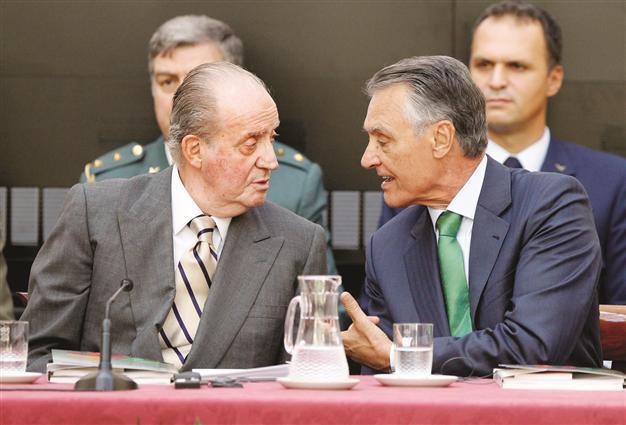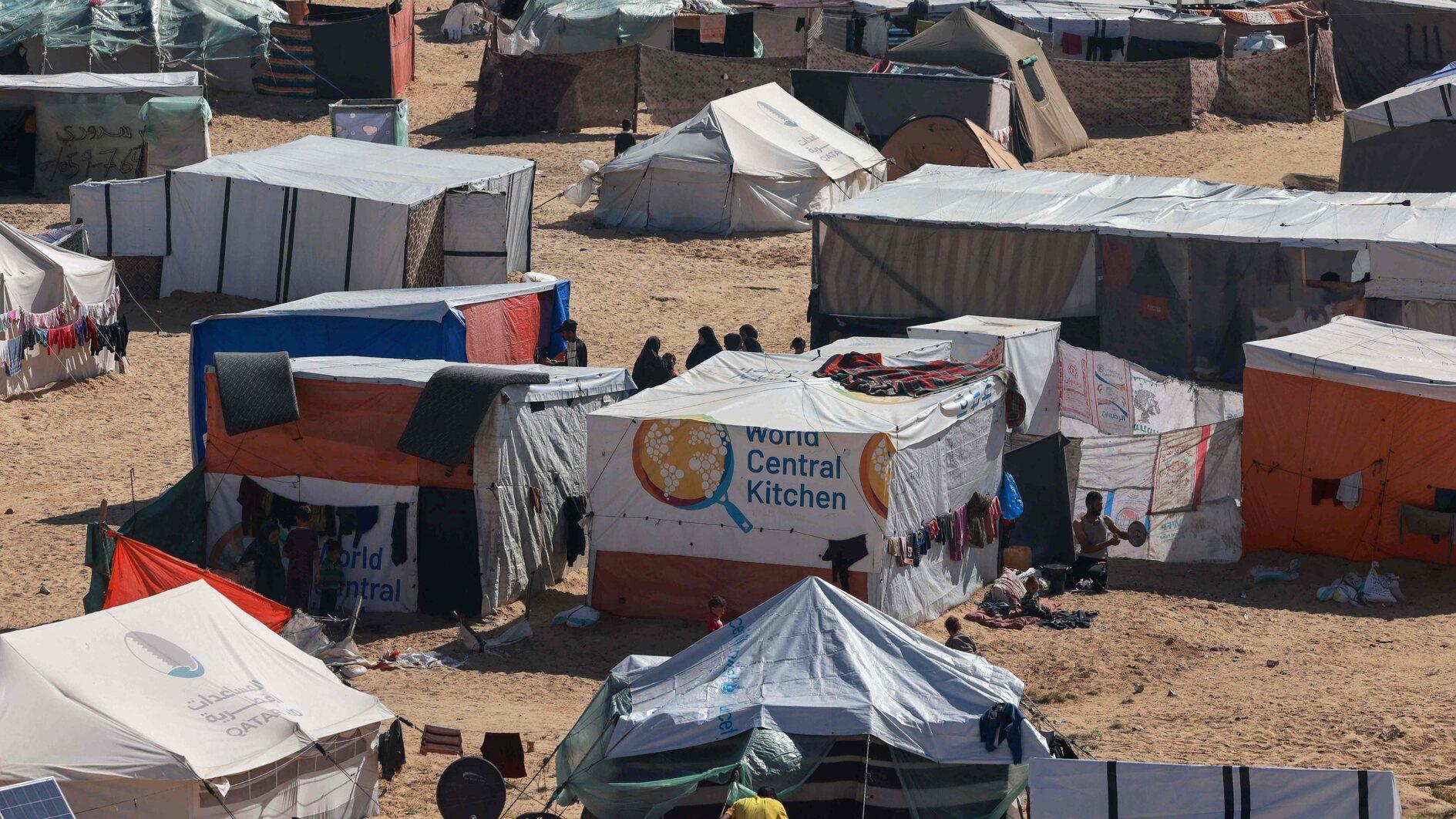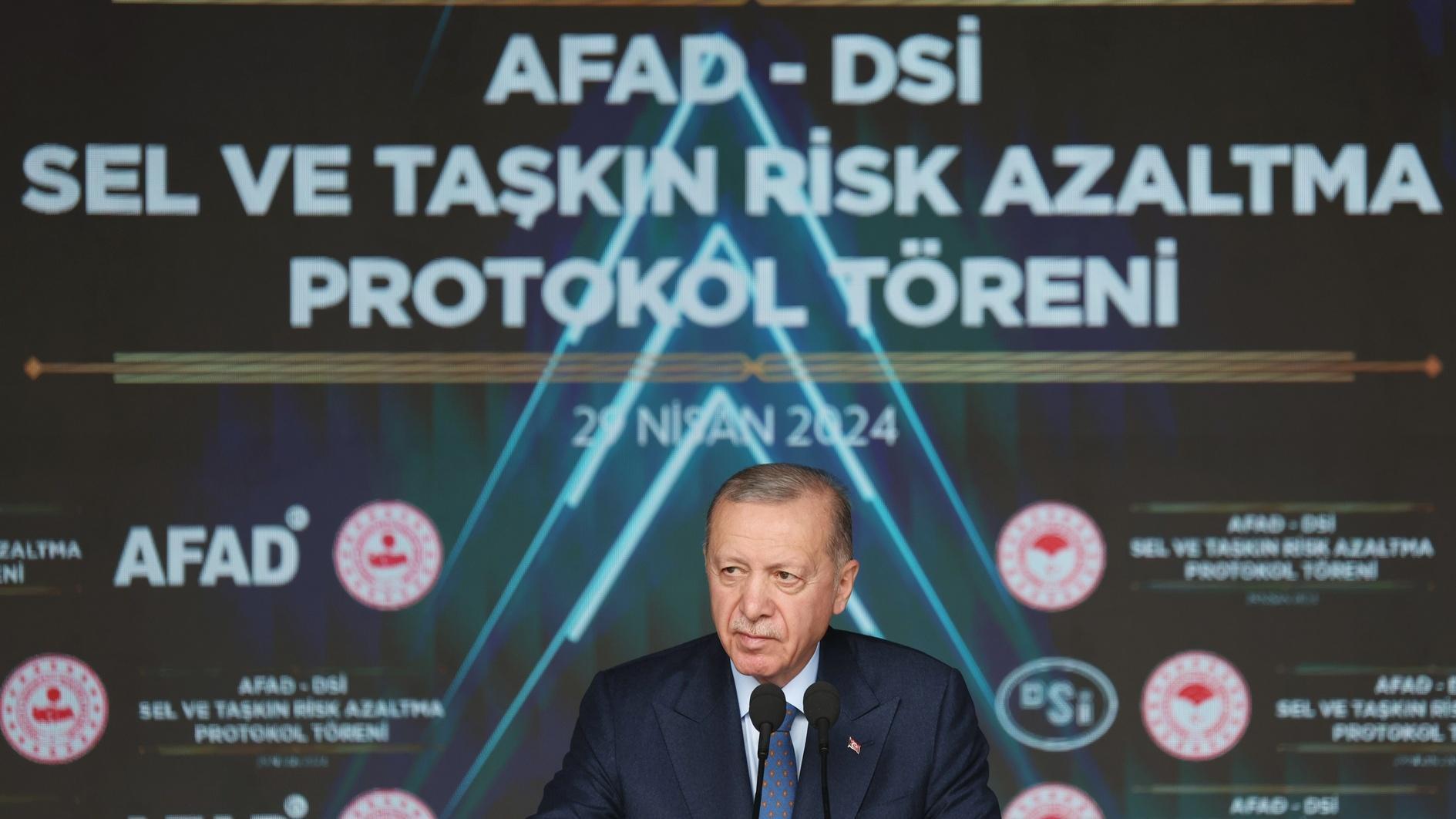European Central Bank acts too slowly, Portugal criticizes
MADRID- Agence France-Presse

Portuguese President Anibal Cavaco Silva (R) talks with Spain’s King Juan Carlos I. EPA photo
Portuguese President Anibal Cavaco Silva criticized the European Central Bank (ECB) for being slow to react to the eurozone debt crisis, in an interview published yesterday.The ECB revealed last month that it was now ready to drive down the borrowing costs of debt-wracked countries by buying their sovereign bonds on the secondary market under strict conditions.
The announcement sparked a rally on debt markets but came only after months of doubt over how the eurozone would help struggling countries such as Spain which has the fourth-biggest economy in the single currency region.
“The European institutions, including the ECB, have a tendency to arrive late,” Silva complained in an interview with Spanish business daily Expansion.
The central bank for the 17 eurozone states “acted very late” to ease market tensions, Silva added.
“The delay in the intervention created enormous speculation in the media and public opinion.” The Portuguese head of state said it was “absurd” that some eurozone members such as Germany were able to borrow on the markets at negative rates while others had to pay more than six percent.
“I have been saying for more than a year that the central bank of a monetary union should be the lender of last resort, and that the ECB ought to be ready to buy unlimited amounts of sovereign debt on the secondary markets,” Silva said.
“In exchange, the countries that are helped must carry out policies leading to stability in their public finances,” he added.
“But, above all, the ECB’s mission should be to guarantee the irreversible nature of the euro.” Silva’s comments were released as eurozone finance ministers gathered in Luxembourg to launch a new weapon against financial crises, the European Stability Mechanism bailout fund.
















